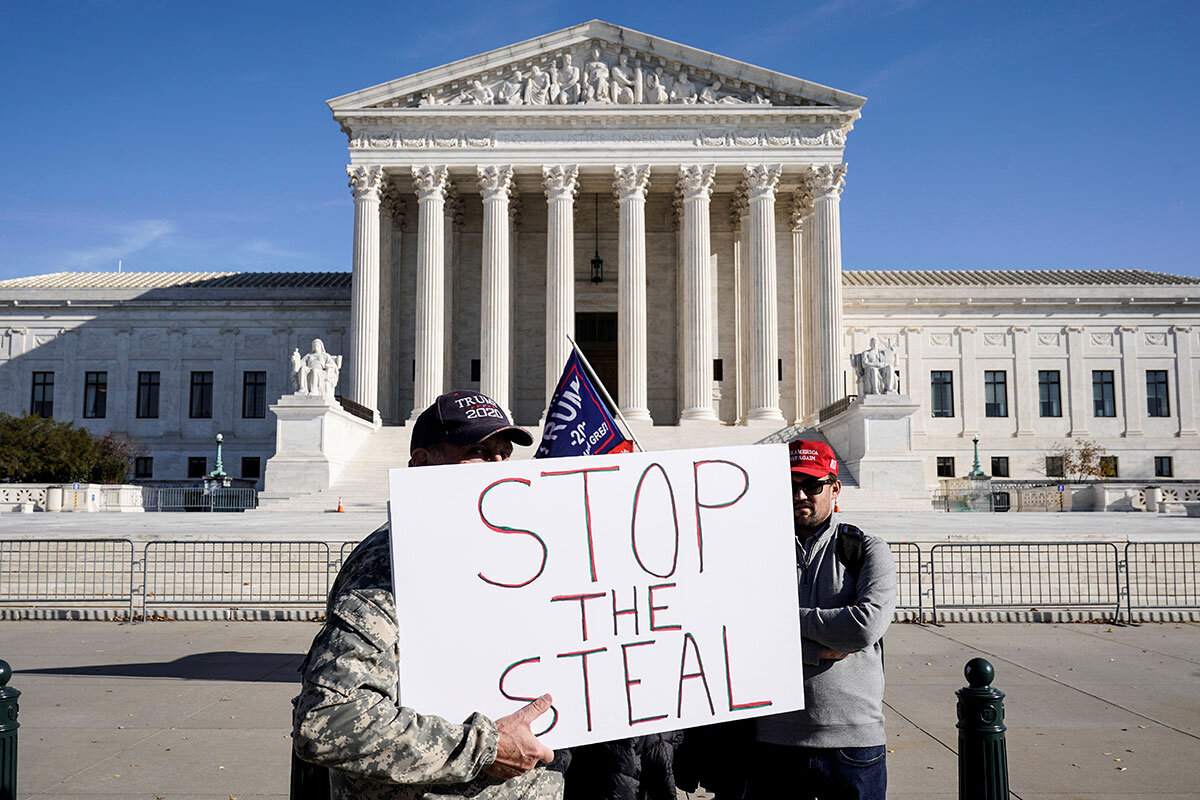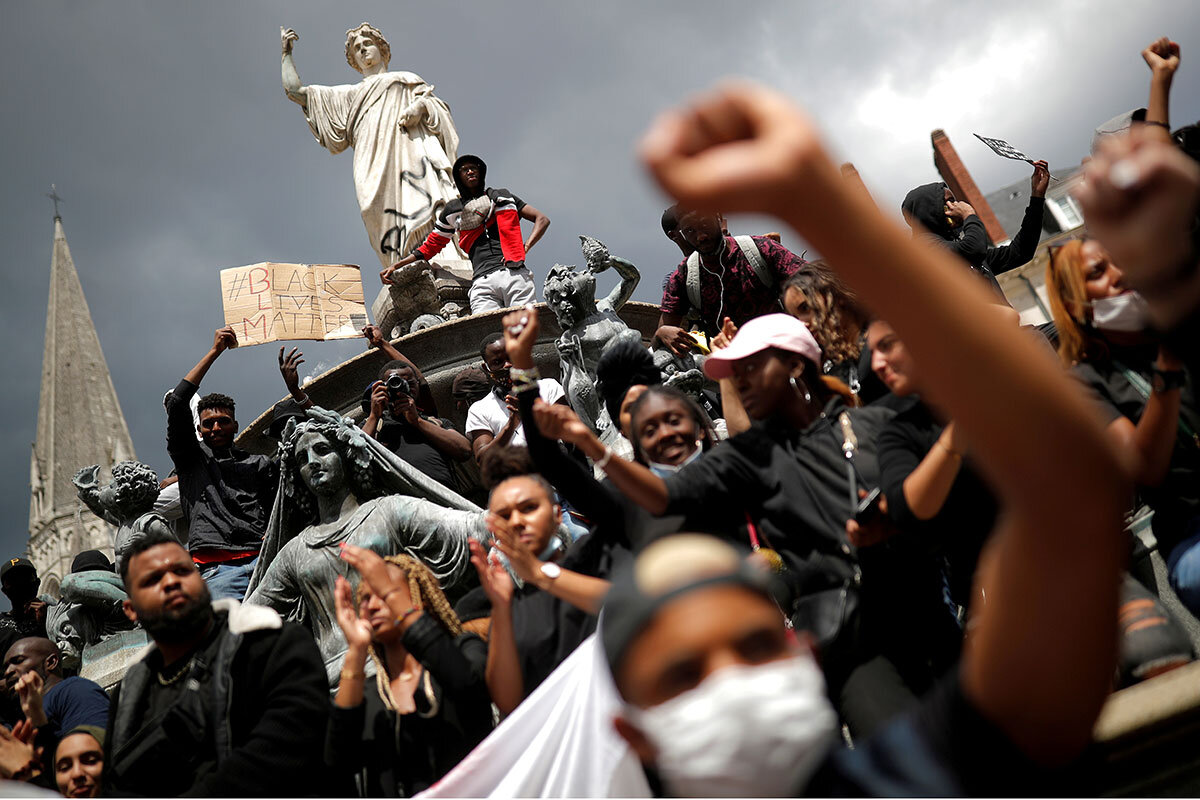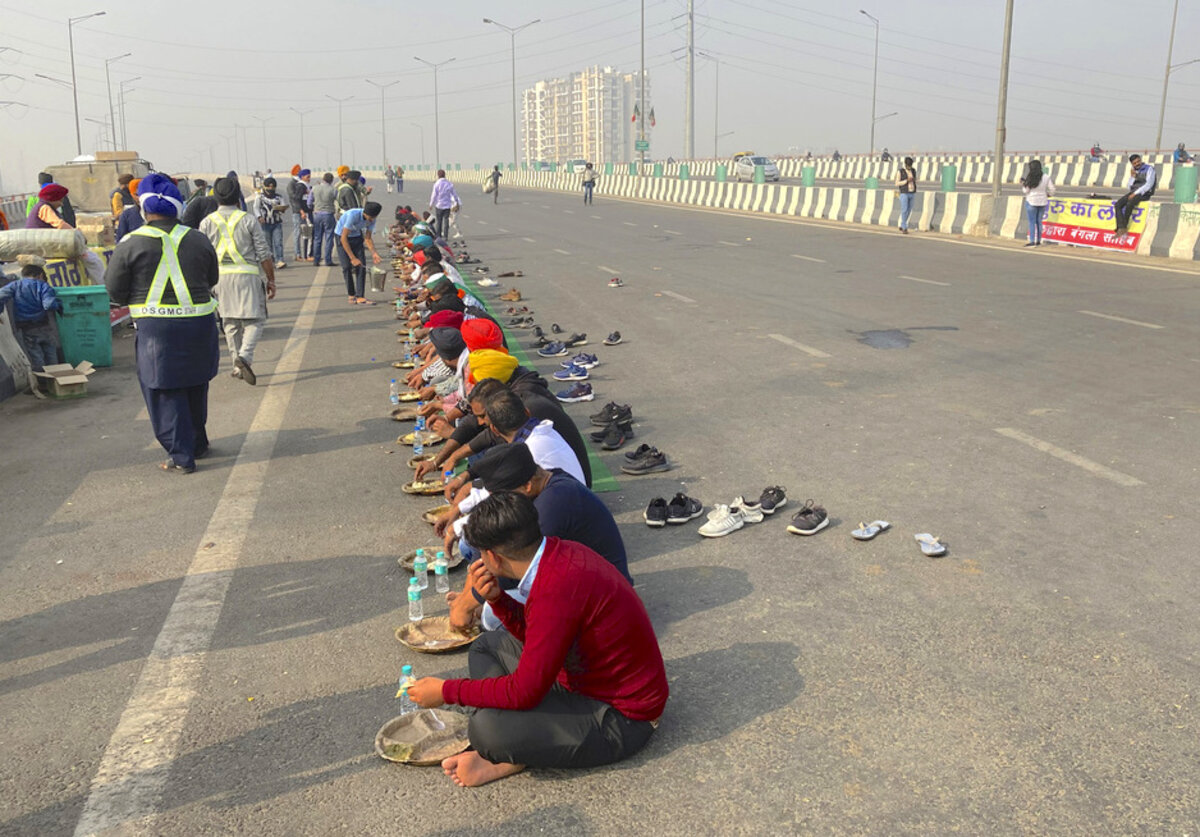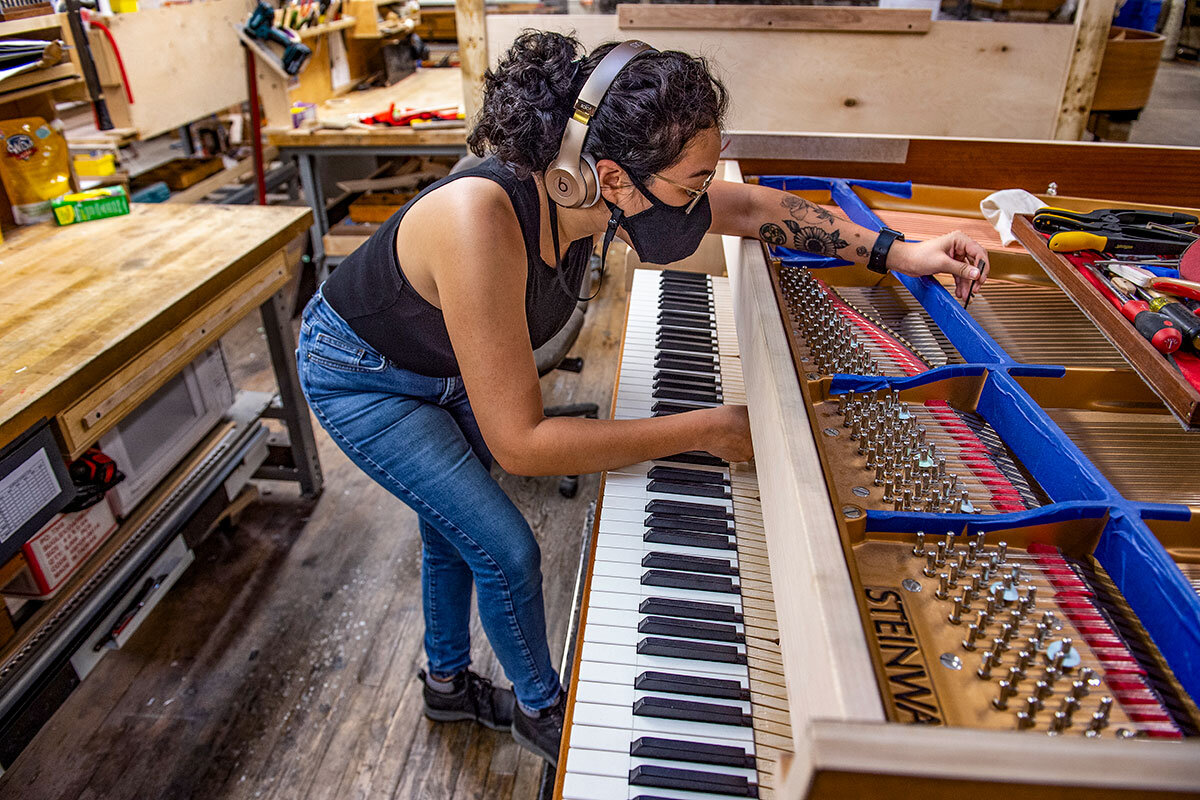A Texas lawsuit aimed at invalidating several states' presidential results could be classified as simply hardball politics. But many say it is flatly anti-democratic.
Monitor Daily Podcast
- Follow us:
- Apple Podcasts
- Spotify
- RSS Feed
- Download
 Amelia Newcomb
Amelia Newcomb
When Harumichi Shibasaki took to YouTube to share his skills as a painter and art teacher three years ago, he had no idea he was about to become an online sensation. Neither did his son, who had suggested his rather offline father take up a new challenge as he turned 70. But while many people liked the Japanese artist’s work, what really resonated, particularly as COVID-19 struck, was his gift of imperturbable joy.
Today, some 700,000 global subscribers track Mr. Shibasaki’s cheerful observations (with English subtitles) about helping colors work together and how autumn trees move the soul. Others follow him on Instagram and Facebook. And don’t forget TikTok, where many of his 300,000 younger enthusiasts ask him to be their grandpa.
The foundation is laid as he starts each lesson with a gentle “I’m Shibasaki.”
“Though I do not understand your language, I find it very soothing,” writes a fan in Malta. A Korean viewer tells him he helps her dream amid the pandemic. Others speak of finding “the power to live today” and “forgetting my pain.”
Mr. Shibasaki, who now does most of his own video work and navigates social media with ease, says the response has changed his mission. “I realized there are more people who say their hearts were healed, [or] they were energized by watching my video, than those who just desire to be good at painting,” he told CNN. “I hope to play a role … in healing people’s hearts.”










